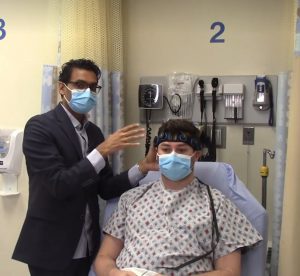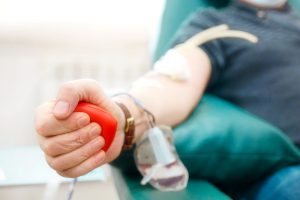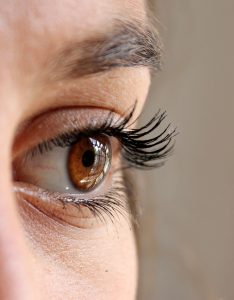This month, we are proud to shine our Employee Spotlight on Mukid Khan, Epic Systems Analyst and Registered Respiratory Therapist . Today is a little more special for this recognition because it is also Mukid’s birthday.
Mukid has been with Jamaica Hospital Medical Center for 10 years. He began his career with us as a Registered Respiratory Therapist; he still continues to fill this role on a per diem basis. His full time position now is as an Epic Systems Analyst.
Mukid grew up in Queens. He lived in Astoria until the age of 16 then moved to Jamaica. He now resides in Forest Hills. He attended P.S. 85 in Astoria, Middle College High School in Long Island City and went on to get his B.S. in Respiratory Care at SUNY Stony Brook. A few years later, Mukid went on to graduate school at SUNY Downstate Health Sciences University where he obtained his M.S. in Medical Informatics.
In his free time, he enjoys listening to thought-provoking podcasts, watching indie films with ambiguous endings, experiencing art shows, and live musical events. Mukid likes to travel to new places. The most memorable places he has visited are the temples and shrines of Kyoto, Japan and the Corn Islands of Nicaragua. He enjoys eating various types of food, his favorites being Nicaraguense, Bangladeshi, and Japanese. Mukid likes music that is melodic especially house and rock. His hobbies include photography, hiking, gaming, experimenting with new recipes, and also mixing music. His favorite annual holiday-time movie is the Lord of Rings Trilogy.
The priorities in his life are his wife and best friend Cristina, family, friends and his cat Kuma. Also important to him are the pursuit of knowledge, understanding and justice.
We look forward to Mukid continuing to work with us for many more years.
All content of this newsletter is intended for general information purposes only and is not intended or implied to be a substitute for professional medical advice, diagnosis or treatment. Please consult a medical professional before adopting any of the suggestions on this page. You must never disregard professional medical advice or delay seeking medical treatment based upon any content of this newsletter. PROMPTLY CONSULT YOUR PHYSICIAN OR CALL 911 IF YOU BELIEVE YOU HAVE A MEDICAL EMERGENCY.









